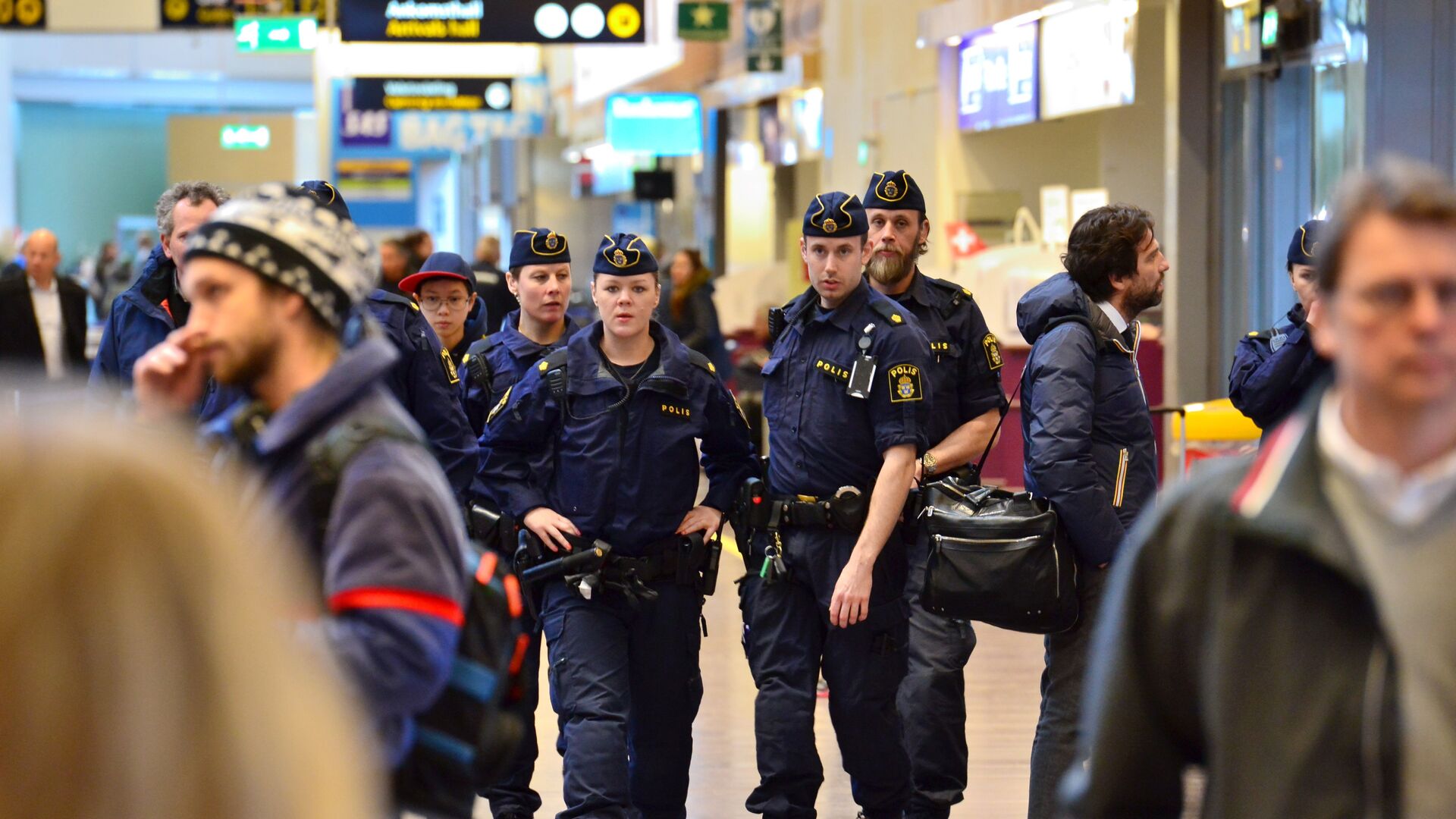https://sputnikglobe.com/20211203/sweden-seeks-to-rein-in-gangsta-rap-following-murder-of-popular-artist-1091217506.html
Sweden Seeks to Rein in Gangsta Rap Following Murder of Popular Artist
Sweden Seeks to Rein in Gangsta Rap Following Murder of Popular Artist
Sputnik International
The debate about the possible effects of gangster rap as a music genre on crime has flared up in Sweden in recent months, following the murder of rapper Nils... 03.12.2021, Sputnik International
2021-12-03T06:11+0000
2021-12-03T06:11+0000
2021-12-03T06:11+0000
newsfeed
europe
sweden
crime
scandinavia
gangsta rap
https://cdn1.img.sputnikglobe.com/img/103695/44/1036954480_0:0:3500:1969_1920x0_80_0_0_ff1ac799902fd20b23ae641984f4280e.jpg
Sweden's new Culture Minister Jeanette Gustafsdotter has added fuel to the national debate about the harmful nature of certain music genres vis-a-vis artistic freedom by saying she wants to take a closer look at whether gangster rap leads to crime.This seems to be a direct response to the call by the country's newly-minted Prime Minister Magdalena Andersson on fellow ministers to “turn every stone” in the fight against crime.Earlier, the national-conservative Sweden Democrats demanded that the Crime Prevention Council (Brå) investigate the genre's harmful effects, such as significance for recruitment into the gang environment, drawing parallels to efforts made in the 1990s to limit the impact of the so-called “white power” movement. The party also called for a ban on state radio playing gangster rap.“It is clear that limiting the influences from this type of music is a type of crime prevention measure, and I see it as vital,” Sweden Democrats legal policy spokesman Tobias Andersson told SVT.According to Andersson, part of the problem is that artists are getting paid for having their songs played on the radio.“I don't think you can ban any music, but you can definitely have a discussion how reasonable it is for the public sector to de facto contribute to the financing of these musicians,” he mused.In late October, 19-year-old Nils Grönberg, known under the moniker “Einár”, was killed in what was described as a gang-related shooting in a Stockholm suburb. Notably, the subsequent week, the artist was set to testify against a prominent gang called Vårby Network. Earlier this year, 27 people with connections to the gang were sentenced to a total of 147 years in prison.In recent years, Sweden has been engulfed in a deadly spiral of gang-related shootouts and blasts. According to the opposition Moderate Party, in the last four years alone, more than 150 people have been killed in over 1,100 shootings.Furthermore, the Swedish police estimated at least 5,000 gang members to be active in so-called vulnerable areas across Sweden (which some prefer to call “ghettos” and “no-go zones” as opposed to the government's parlance) and counted some 40 criminal clans, some of which arrived in Sweden from abroad solely for the purpose of committing crimes.
sweden
scandinavia
Sputnik International
feedback@sputniknews.com
+74956456601
MIA „Rosiya Segodnya“
2021
News
en_EN
Sputnik International
feedback@sputniknews.com
+74956456601
MIA „Rosiya Segodnya“
Sputnik International
feedback@sputniknews.com
+74956456601
MIA „Rosiya Segodnya“
newsfeed, europe, sweden, crime, scandinavia, gangsta rap
newsfeed, europe, sweden, crime, scandinavia, gangsta rap
Sweden Seeks to Rein in Gangsta Rap Following Murder of Popular Artist
The debate about the possible effects of gangster rap as a music genre on crime has flared up in Sweden in recent months, following the murder of rapper Nils “Einár” Grönberg amid an overall crime wave. Some, including the national-conservative Sweden Democrats, went so far as to suggest banning it from public radio.
Sweden's new Culture Minister Jeanette Gustafsdotter has added fuel to the national debate about the harmful nature of certain music genres vis-a-vis artistic freedom by saying she wants to take a closer look at whether gangster rap leads to crime.
“It is very important to look at it and see: What does it lead to? We must definitely look at it and see if it leads to crime. Then we have to do something about it,” Gustafsdotter told national broadcaster SVT. “Hopefully I can influence, start the debate and talk about the seriousness of this situation. Young people should face culture and music in a different way so that it does not lead to violence,” she said about her role as culture minister.
This seems to be a direct response to the call by the country's newly-minted Prime Minister Magdalena Andersson on fellow ministers to “turn every stone” in the fight against crime.
Earlier, the national-conservative Sweden Democrats demanded that the Crime Prevention Council (Brå) investigate the genre's harmful effects, such as significance for recruitment into the gang environment, drawing parallels to efforts made in the 1990s to limit the impact of the so-called “white power” movement. The party also called for a ban on state radio playing gangster rap.
“It is clear that limiting the influences from this type of music is a type of crime prevention measure, and I see it as vital,” Sweden Democrats legal policy spokesman Tobias Andersson
told SVT.
According to Andersson, part of the problem is that artists are getting paid for having their songs played on the radio.
“I don't think you can ban any music, but you can definitely have a discussion how reasonable it is for the public sector to de facto contribute to the financing of these musicians,” he mused.
In late October, 19-year-old Nils Grönberg, known under the moniker “Einár”, was killed in what was described as a gang-related shooting in a Stockholm suburb. Notably, the subsequent week, the artist was set to testify against a prominent gang called Vårby Network. Earlier this year, 27 people with connections to the gang were sentenced to a total of 147 years in prison.
In recent years, Sweden has been engulfed in a deadly spiral of gang-related shootouts and blasts. According to the opposition Moderate Party, in the last four years alone, more than 150 people have been killed in over 1,100 shootings.
Furthermore, the Swedish police estimated at least 5,000 gang members to be active in so-called vulnerable areas across Sweden (which some prefer to call “ghettos” and “no-go zones” as opposed to the government's parlance) and counted some 40 criminal clans, some of which arrived in Sweden from abroad solely for the purpose of committing crimes.



